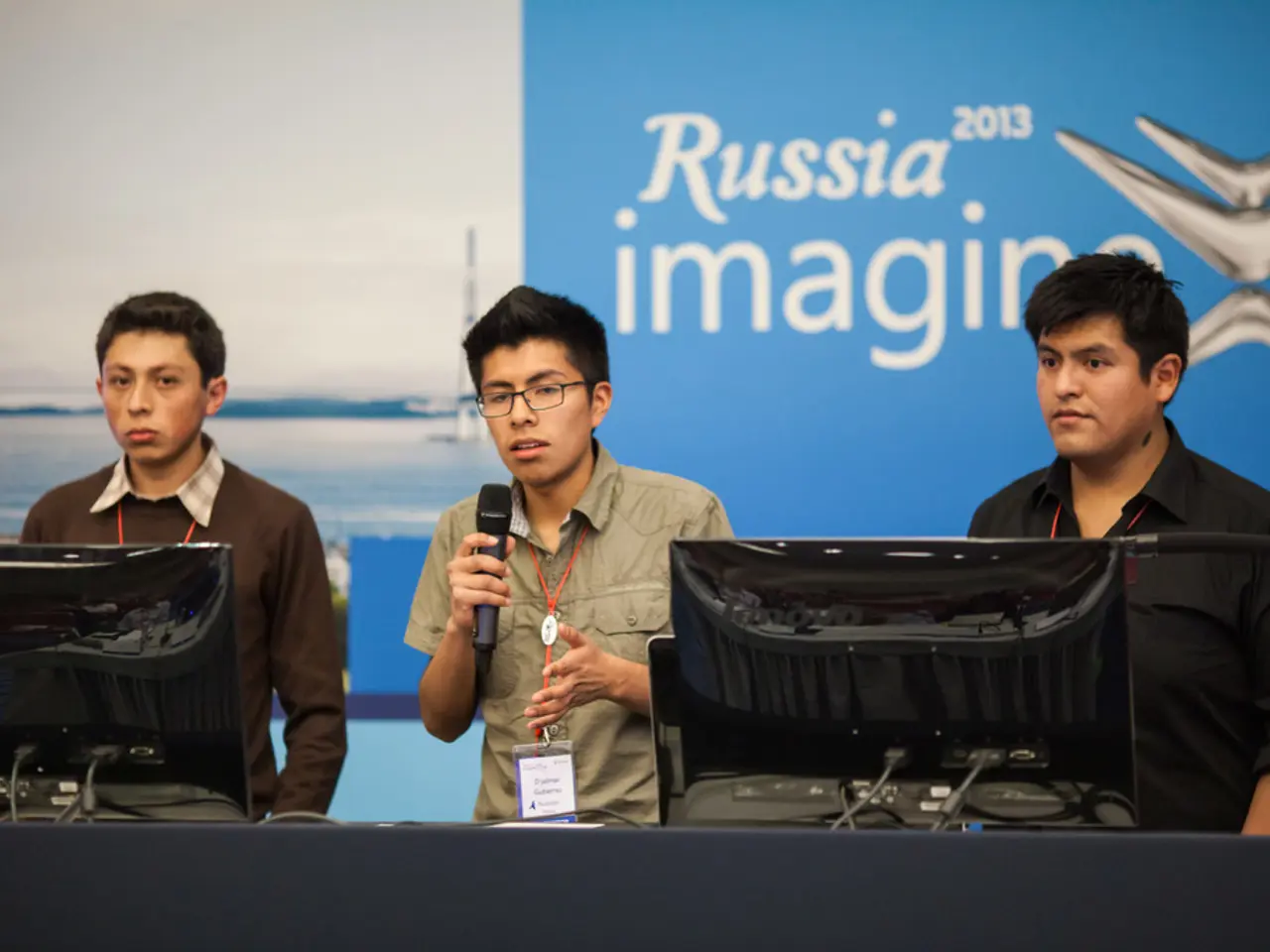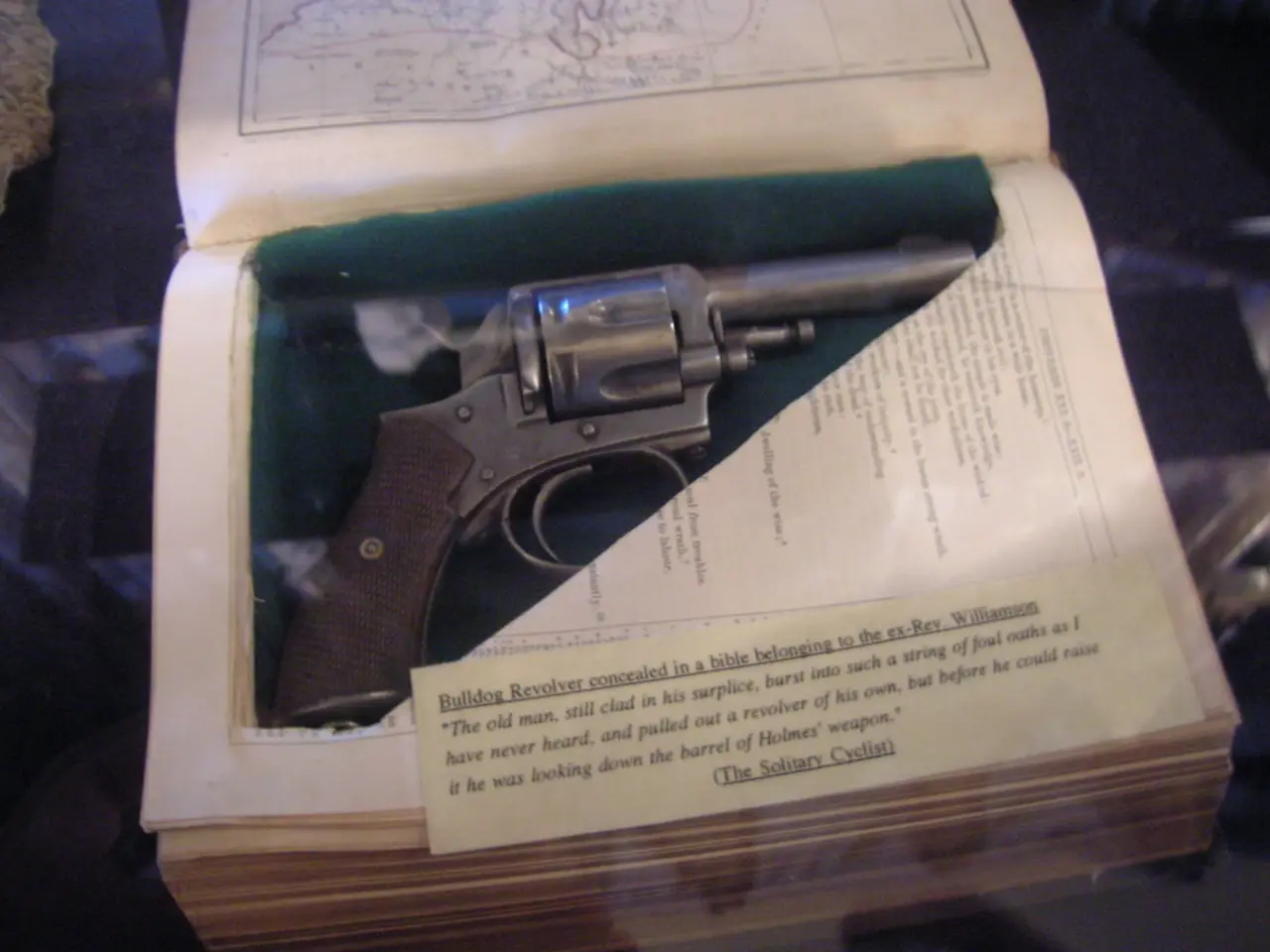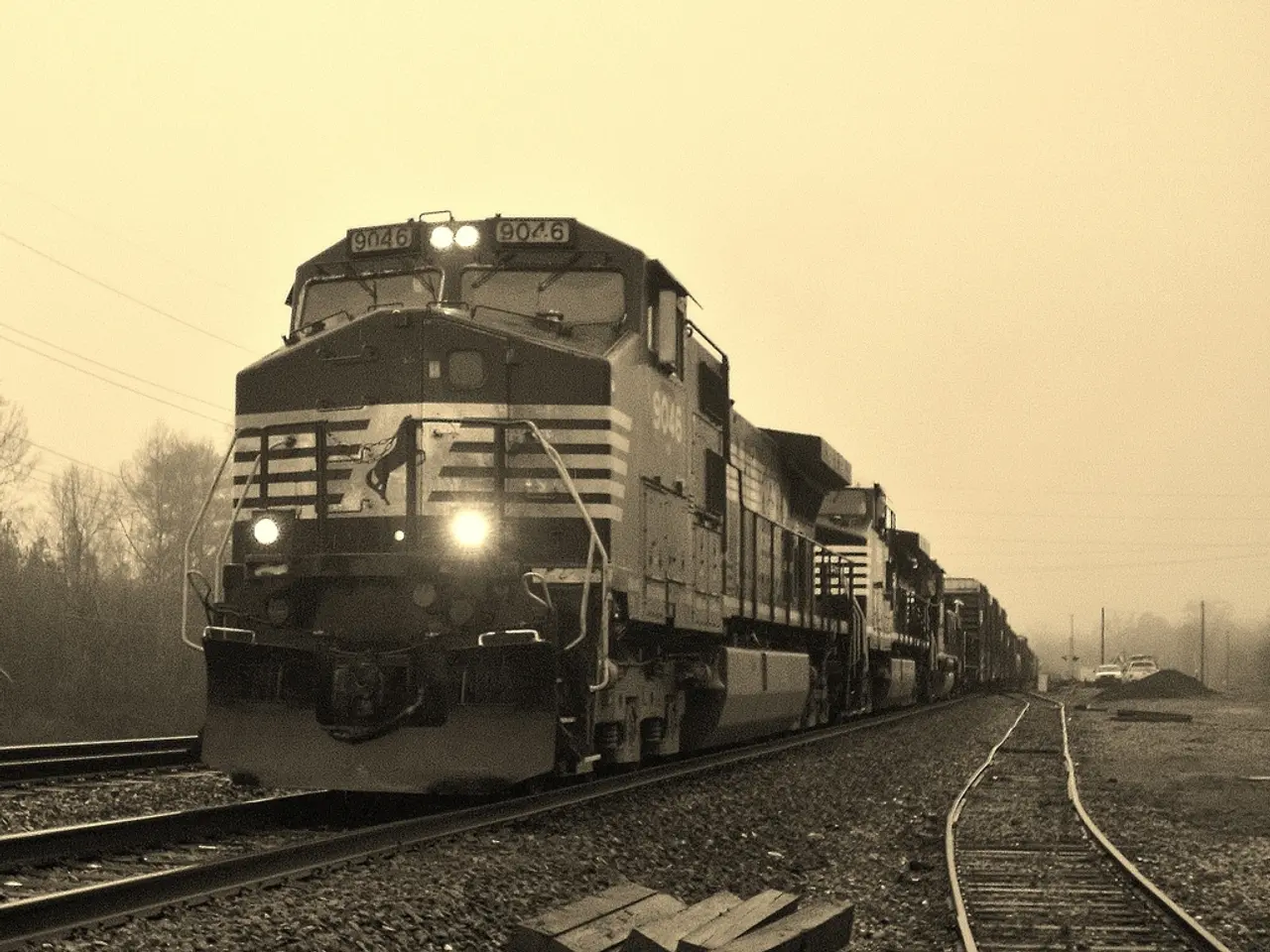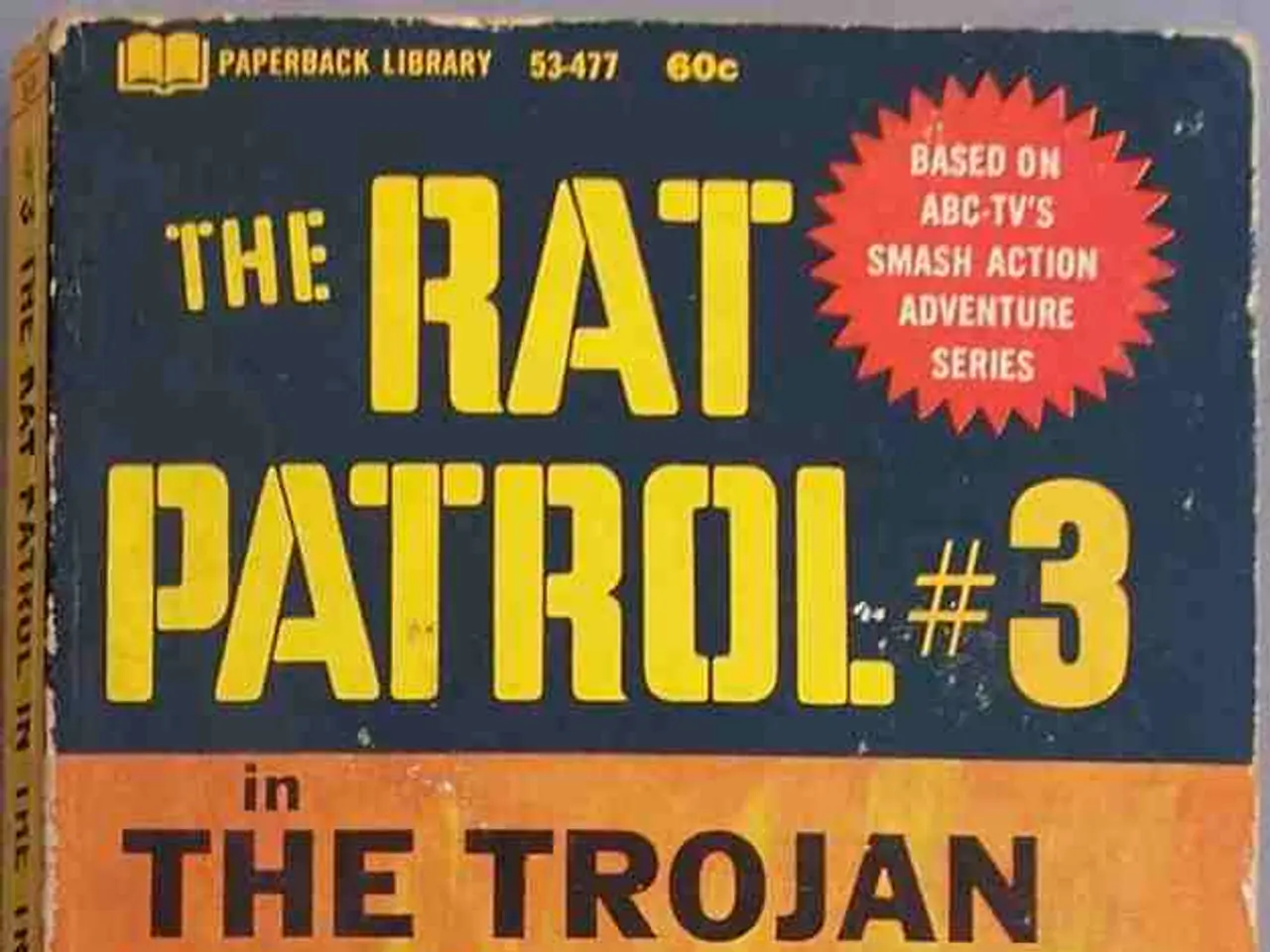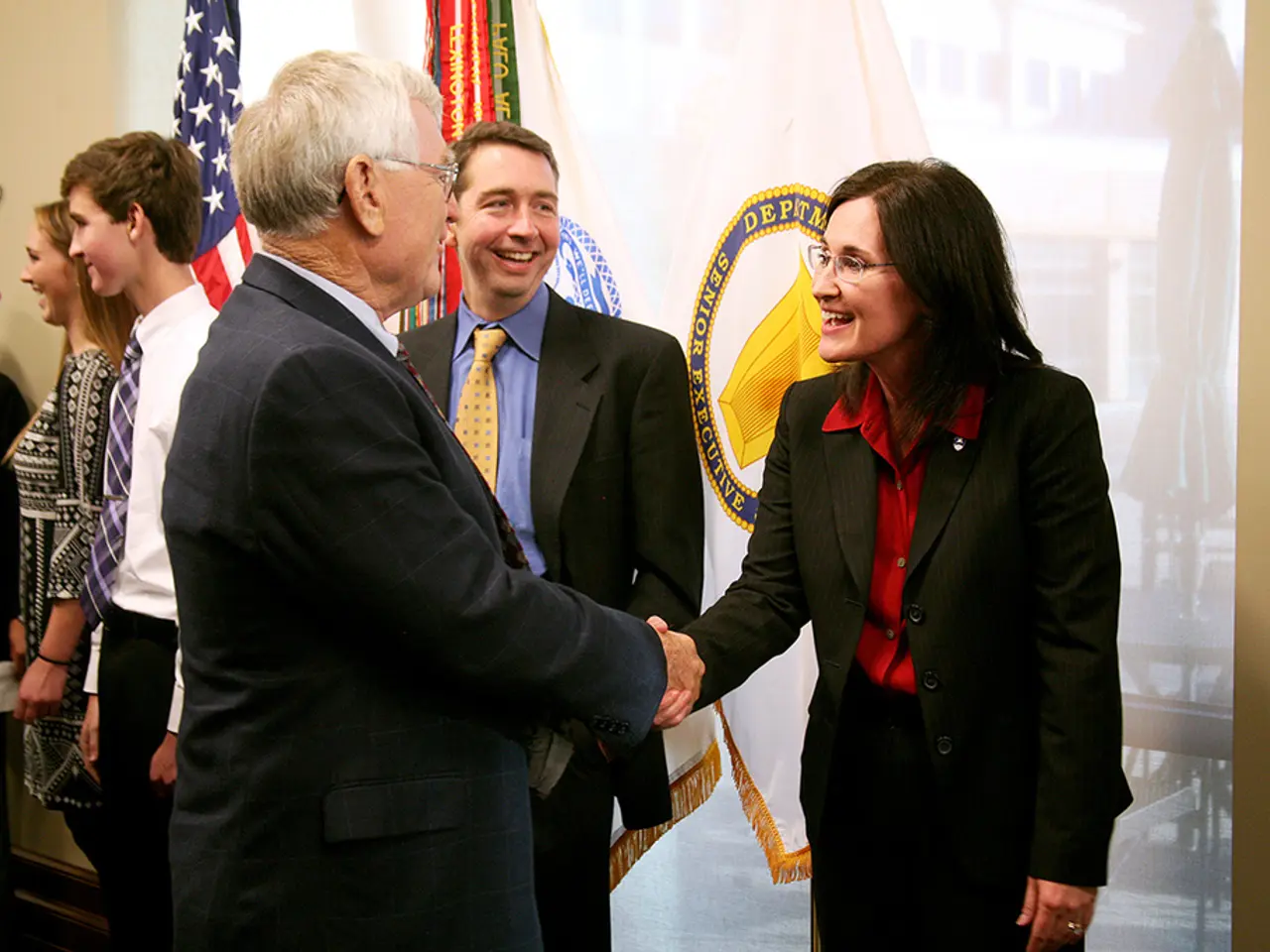Escalating Tensions: Estimated Capability of Iran to Produce Multiple Nuclear Weapons
In the heart of international politics, diplomatic efforts to address Iran's nuclear program and its growing stockpile of enriched uranium are facing significant challenges. The current standoff has been ongoing since early 2025, with little progress made in convincing Iran to limit its uranium enrichment to civilian levels.
According to recent reports, Iran currently possesses 70 kilograms (155 pounds) of uranium enriched to 60%, a level higher than during previous tensions with the West under President Mahmoud Ahmadinejad. This increase in Iran's nuclear capabilities has raised international concerns, particularly as nonproliferation experts suggest that Iran has enough uranium enriched to at least 60% to build at least one nuclear weapon [1].
Diplomatic initiatives, such as a U.S. proposal in spring 2025, have been rejected by Iran, leading to a stalemate with no substantive Iranian response even after a 60-day ultimatum set by the Trump administration expired in March 2025 [1]. Iran has firmly rejected negotiations amid ongoing Israeli airstrikes against its nuclear facilities, closing avenues for diplomatic solutions in the near term [1].
However, dialogue and diplomacy remain the only sustainable path forward to ensure peace and security in the region, emphasises the International Atomic Energy Agency (IAEA), the key international institution overseeing peaceful nuclear use. The IAEA is actively maintaining contact with Iranian and Israeli authorities and stands ready to facilitate technical discussions to promote transparency, safety, and peaceful resolution of nuclear issues in Iran [3].
Future diplomatic efforts, if resumed, must take a comprehensive approach that addresses not only Iran’s nuclear program but also its broader strategic ambitions and regional influence. Any agreement must balance preventing Iran’s nuclear weapon development with respecting its sovereignty to avoid outright rejection by Tehran [2].
The evolving military situation, including Israeli strikes, impacts the diplomatic environment and may open a narrow window for renewed talks. There is indication of Iran quietly signaling willingness to negotiate with regional Arab states, provided hostilities cease, reflecting Iran’s internal vulnerabilities and desire to avoid direct conflict with the U.S. [4].
As of mid-2025, diplomatic efforts are in a deadlock but ongoing behind the scenes, relying heavily on international institutions like the IAEA and contingent on shifts in regional military and political dynamics [1][2][3][4].
Meanwhile, the Iranian rial is plunging to historical lows against the dollar amidst the country's crises, and Iranian officials have begun discussing the possibility of building nuclear weapons. The United Nations' leading nuclear official, Rafael Mariano Grossi, has warned that Iran has enough highly enriched uranium to construct multiple nuclear weapons, highlighting the increased risks over Iran's nuclear program [1].
In response, the State Department has denied Iran's claims and stated that any future talks with Iran are off the table due to Iran's punishing of the protests after the death of Mahsa Amini. Iran is also reportedly supplying bomb-carrying drones to Russia, which has targeted nuclear power plants and civilian targets across Ukraine [5].
Grossi, however, still advises more diplomacy, acknowledging that Iran would still need to create and test any possible nuclear weapon [1]. As the global community navigates this complex geopolitical landscape, the pursuit of diplomatic solutions remains crucial in managing the risks posed by Iran's nuclear program.
The escalating tensions surrounding Iran's nuclear program, as evidenced by its increased stockpile of enriched uranium, have found their way into general news discussions, raising concerns not only within politics but also in the broader realm of war-and-conflicts. Despite this, the International Atomic Energy Agency continues to advocate for diplomatic dialogue, recognizing that crime-and-justice, such as punishing protesters, could hinder opportunities for negotiation.
